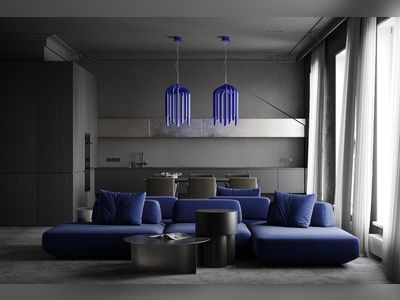These are only a few of the many questions I get asked by parents and grandparent. Yes, Feng Shui and its principles of energy can make a huge difference in everyone’s life, especially young and impressionable children. What you surround your child with, the colors on the walls, the pictures and posters a child looks at every time he or she goes to sleep or awakens and the music they listen to make huge differences in their thoughts and actions.
Feng Shui for the Nursery
Let’s begin in the beginning, the nursery. The first energy principle you need to apply is peacefulness in the child’s nursery. The primary function of a nursery is to create a peaceful and safe setting for the child to sleep. Infants need lots of rest to allow them to help their body’s grow, relate to their new world, develop good sleeping habits, learn household rules and visually explore their surroundings. In order to create this much needed peaceful setting, colors used in the nursery should be pastel and any patterns used should have gentle movement with few sharp edges. Also included in the nursery should be a pastel version of the color wheel so the infant is exposed to the full spectrum of colors. A large gently arching rainbow would be a good example of just such use of color. Over stimulation with bright colors and many shapes in the nursery cause anxiousness and restlessness on the part of the infant. Just as pastel colors create a peaceful sleep encouraging sanctuary for adults, the same is true for infants.
Feng Shui for Elementary School Children
As children get older and are off to elementary school, the primary use for their bedroom should still be for sleep and when appropriate, homework. Continue to keep the colors on the walls pastel and use pictures, pillows and stuffed animals to add bright color splashes to the room. Music played in the bedroom should also reflect the reason for the room, peacefulness, sleep and learning. Play areas with lots of stimulation through colors, shapes and sounds should be reserved for another location in the house. If the bedroom is used for stimulating activities plus rest a child’s body gets confused at such an early formative stage in life and can’t decide whether they should rest in their room or remain constantly on the go.
Sanctuary and Study
By creating the bedroom as a sanctuary and a place to study it is much easier to have a child work within the framework of the household rules as they get older. For example, by starting with the fundamental bedroom rules during infancy and early childhood they will recognize that rules are for making their life more secure, living within family guidelines and protecting them. The big challenge comes when a child reaches their teens. Not only is it important for a teen’s room to remain a sanctuary for rest and study so it too must be painted pastel colors. Even more important, the music played in that bedroom and the posters and pictures hung on their walls must be consistent with the energy intent of rest and learning.
Besides enforcing early childhood rules, one of the jobs of parents and grandparents during the teen years is to make sure that the last picture or poster a child sees and the last sounds they hear before going to sleep are of or performed by acceptable role models based on the parent’s values, not the child’s. Energy is a very powerful thing. In this case, the energy in the pictures and music in a teen’s room molds the teen’s thought process and actions. Remember, the last thing they see at night is the first thing they see upon arising in the morning. This is a huge influence on a child’s life, both present and future.
Use positive energy in a child’s life to influence positive thinking and actions. Feng Shui is a wonderful tool in the arsenal of a parent or grandparent when trying to positively influence a child’s future. It all begins in the bedroom. Create a soft soothing sanctuary in their world that provides rest, security and peaceful energy conducive to learning, living by family rules and participating in a lifetime guided by family values.



![A Tranquil Jungle House That Incorporates Japanese Ethos [Video]](/images/22/08/b-2ennetkmmnn_t.jpg)







